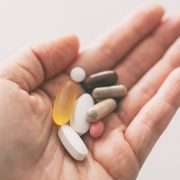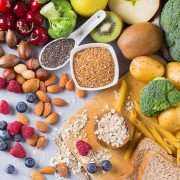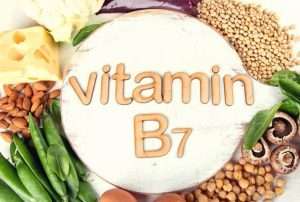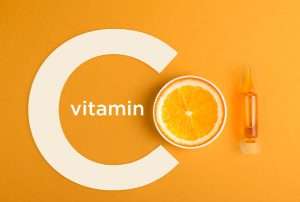Best Vitamin for Immune System
Best Vitamin for Immune System
A vitamin is a substance required by the body for good health. Vitamin deficiency leads to health problems. Many people think that vitamins are only found in supplements- but foods also contain vitamins. Foods that contain many vitamins include green leafy vegetables, meat, fish and cereal grains. What are different types of vitamins? Which is the best vitamin for immune system? How to increase immunity power in body naturally? In this blog, we’ll answer these questions about vitamins.
Vitamins & Deficiency
Vitamin deficiency leads to health problems. For example, not all of the calcium we need comes from eating foods- we also need vitamin D. We also get vitamin D from eating foods containing animal products, such as fatty fish and cheese. Not all of the facts about vitamins are publicly known; for that reason, many people think that vitamins are only found in supplements- but foods also contain vitamins.
Diseases and Food
We know that certain diseases are less common in countries where food contains lots of vitamins and micronutrients. That shows how essential vitamins are for our health. Vitamins are used by the body to maintain normal metabolism and certain bodily functions such as the brain and nervous system, skin, blood coagulation, digestive system and eyesight. Foods contain the vitamins we need: We get most of our vitamins from foods we eat every day.
Food to increase immunity in body
Green leafy vegetables such as spinach, Brussels sprouts, cabbage and kale contain many important vitamins such as vitamin A, C and K; these help our bodies function normally. These are foods to increase immunity in body Other sources of vitamins include meat, fish, eggs, nuts and grains such as wheat and corn meal. Vitamin deficiency is rare because our bodies can effectively absorb and use the necessary amount of dietary vitamins.
Types of Vitamins
1. Vitamin A
Vitamin A helps with immune function, cellular communication, growth and development, and male and female reproduction. Vitamin A promotes cell growth and differentiation, and it is essential for the development and maintenance of the heart, lungs, eyes, and other organs. Vitamin A is also important for vision because it is a necessary component of rhodopsin, the light-sensitive protein in the retina that responds to light entering the eye, and because it promotes the normal differentiation and function of the conjunctival membranes and cornea. Vitamin A is found in animal products such as dairy products, eggs, fish, and organ meats. The majority of vitamin A in the body is stored in the liver as retinyl esters.
2. Vitamin D
Vitamin D (calciferol) is a fat-soluble vitamin found in a few foods, added to others, and available as a dietary supplement. Endogenous production occurs when ultraviolet (UV) rays from sunlight strike the skin and initiate vitamin D synthesis. Vitamin D promotes calcium absorption in the gut and maintains adequate serum calcium and phosphate concentrations, allowing normal bone mineralization and preventing muscle cramps and spasms. Without enough vitamin D, bones can become brittle and thin. Vitamin D deficiency prevents rickets in children and osteomalacia in adults. Together with calcium, vitamin D helps protect older adults from osteoporosis. Vitamin D also reduces inflammation and modulates processes such as cell growth, neuromuscular and immune function, and glucose metabolism in the body. Although the presence of fat in the gut increases vitamin D absorption, some vitamin D is absorbed even when there is no fat in the diet. Vitamin D absorption from the gut is unaffected by ageing or obesity.
3. Vitamin E
Vitamin E can be found naturally in some foods, added to others, or taken as a dietary supplement. The term “vitamin E” refers to a class of fat-soluble compounds with distinct antioxidant properties. The other forms of vitamin E are metabolised and excreted by the liver. Antioxidants protect cells from the oxidative stress caused by free radicals, which are molecules with an unshared electron. Free radicals cause cell damage and may play a role in the development of cardiovascular disease and cancer. Unshared electrons have a high energy and quickly react with oxygen to form reactive oxygen species (ROS). When the body converts food to energy, it produces ROS, and antioxidants may protect cells from the damaging effects of ROS. Environmental exposures such as cigarette smoke, air pollution, and ultraviolet radiation from the sun also expose the body to free radicals. ROS are involved in cell signalling mechanisms. Vitamin E is a fat-soluble antioxidant that inhibits the formation of reactive oxygen species (ROS) when fat is oxidised. In addition to its antioxidant properties, vitamin E is involved in immune function, cell signalling, gene expression regulation, and other metabolic processes, as evidenced primarily by in vitro studies of cells.
4. Vitamin K
Because vitamin K is a fat-soluble vitamin, it does not dissolve in water. Excess amounts are stored in your liver and fatty tissues in your body. The absorption of vitamin K and other fat-soluble vitamins is enhanced when they are consumed with dietary fat. Vitamin K primarily aids in blood clotting, bone metabolism, and protein synthesis. It works in your liver as well as other tissues such as your brain, pancreas, and heart, as well as your skeletal system. Unlike the other fat-soluble vitamins, vitamin K circulates in your blood in very small amounts at any given time. In fact, if you take a one-time supplemental dose of vitamin K, your body will retain approximately 30-40% of it for use and storage, while eliminating the remainder. Because your body has a limited amount of vitamin K storage, some of it is recycled and reused multiple times. Calcium metabolism is aided by vitamin K. It is required for the production of two regulatory proteins known as osteocalcin and matix Gla-protein (MGP). Osteocalcin is produced by osteoblasts and promotes bone calcification, whereas MGP inhibits blood vessel calcification. Vitamin K is thought to prevent osteoporosis and cardiovascular disease by ensuring calcium stays in the bones.
How to boost immune system when sick
Vitamin C – Best vitamin for immune system
Vitamin C, also known as L-ascorbic acid, is a water-soluble vitamin that occurs naturally in some foods, is added to others, and can be obtained as a dietary supplement. Because humans, unlike most animals, cannot synthesise vitamin C endogenously, it is a necessary dietary component. Vitamin C is required for the biosynthesis of collagen, L-carnitine, and certain neurotransmitters, as well as for protein metabolism. Collagen is an important component of connective tissue, which aids in wound healing. Vitamin C is a physiological antioxidant that has been shown to regenerate other antioxidants in the body, including alpha-tocopherol (vitamin E).
Vitamins to boost immune system
Ongoing research is looking into whether vitamin C can help prevent or delay the development of certain cancers, cardiovascular disease, and other diseases caused by oxidative stress by limiting the damaging effects of free radicals. In addition to its biosynthetic and antioxidant functions, vitamin C aids in immune function and the absorption of nonheme iron, which is found in plant-based foods. Scurvy is caused by a lack of vitamin C, which is characterised by fatigue, widespread connective tissue weakness, and capillary fragility. High levels of vitamin C (millimolar concentrations) are maintained in cells and tissues, with leukocytes (white blood cells), eyes, adrenal glands, pituitary gland, and brain having the highest levels.
Extracellular fluids, such as plasma, red blood cells, and saliva, contain relatively low levels of vitamin C (micromolar concentrations). Vitamin C sources abound and go far beyond the ever-popular orange or orange juice. This essential vitamin is found in a variety of fruits and vegetables. Citrus fruits, tomatoes, potatoes, strawberries, green and red bell peppers, broccoli, Brussels sprouts, and kiwifruit are all good sources of vitamin C. You can eat these foods raw or cooked, but keep in mind that fruits and vegetables lose vitamin C when heated or stored for an extended period of time. Eat them as soon as possible after shopping to get the most nutrients, and consider steaming or microwaving vegetables for short periods of time to limit nutrient loss.
Vegetarians may be particularly interested to learn that vitamin C aids the body’s absorption of non-heme iron, which comes from plant foods such as beans, spinach, and quinoa. Combine vitamin C-rich foods with iron-rich plant foods in the same meal to reap this benefit. Combine black beans and salsa, for example, or make a flavorful spinach salad with strawberries and mandarin oranges.
Vitamin B-complex
A vitamin B complex supplement contains eight B vitamins: B1 (thiamin), B2 (riboflavin), B3 (niacin), B5 (pantothenic acid), B6 (pyridoxine), B7 (biotin), B9 (folate), and B12 (cobalamin). B vitamins are water-soluble vitamins that are naturally found in meat, leafy greens, dairy, beans, peas, and whole or fortified grains. Each of the eight vitamins contained in vitamin B complex supplements has its own set of health benefits. Other vitamins, such as B2, work together with other B vitamins in the body to convert food into energy. B2 converts B6 into usable form and aids in the production of niacin, which is primarily obtained from food and is required for cell function. While vitamin B5 is involved in immune function and is required by the body to use and store protein and carbohydrates from food in the form of glycogen, vitamin. B7 aids the body in converting fats, carbohydrates, and proteins from food into energy.
Vitamin C Deficiency and Toxicity
Vitamin C is super important for boosting our immune system. Apart from boosting immunity, it also lowers the risk of heart disease and improves memory! Let us have a look at the deficiency and toxicity of vitamin C.
Deficiency
The absence of the C vitamin is fairly common nowadays and can result in decreased collagen production, which can lead to the breakdown of body tissues, gingivitis, nose bleeds, rough, dry, scaly skin, reduced wound healing, and a reduced body’s ability to prevent infections. Scurvy is caused by a severe deficiency of this vitamin, which causes brown spots on the skin in the mesenchymal tissues. Oedema, haemorrhage in the skin and various internal organs, lethargy, fatigue, muscular atrophy, rheumatic pain, and skin lesions are also symptoms. People who are deficient in vitamin C have swollen and bleeding gums, tooth loss, hysteria, depression, and other symptoms.
Deficiency of this essential vitamin causes Moeller-Barlow disease in children and infants, which is characterised by severe joint pain, fever, anaemia, dry brownish skin, bleeding gum, haemorrhage, coated tongue, and pallor-fetid breath. Children with this disease limp or are unable to walk. Because vitamin C is found to be effective in iron absorption, a lack of it may result in severe anaemia.
Toxicity of Vitamin C
Vitamin C is an essential component of a well-balanced diet. Because it is water-soluble, it is excreted from the body through urine, so there is a low risk of side effects.Taking this incredible nutrient in higher doses or at higher levels than recommended can result in diarrhoea, nausea, vomiting, abdominal cramps, heartburn, and headache. Acute toxicity from excessive vitamin C consumption can result in severe diarrhoea, gastrointestinal problems, and kidney stones. To reap the benefits, it is strongly advised to consume vitamin C through food or supplements in the amount prescribed by your doctor or health care provider.
Vitamins to boost immune system
Plix has encapsulated all of its goodness in its Immune Boost – Daily fizzy supplement that helps you boost your immunity game in a delicious way!
FAQs
1. How can I consume Vitamin C?
Vitamin C can be consumed through different food sources or supplements. You can chekc out Plix’s Immune Boost supplements that provides 1,000mg of Vitamin C, is easy to take, contains pure ascorbic acid, and is free of allergens and added sugar.
2. What is the ideal daily intake of Vitamin C?
Vitamin C is recommended for a daily dose of 65 to 90 mg, with a daily maximum of 2,000 mg.
3. Why should I consume Vitamin C?
Vitamin C has multiple impressive health benefits, including increased antioxidant levels, lower blood pressure, increased iron absorption, immunity boost, and a lower risk of heart disease and dementia.
4. Why should I consider Plix’s Vitamin C supplementation ?
Plix’s Vitamin C Immune Boost – Daily fizzy effervescent tablets contain all of the vitamin C goodness found in natural foods! It boosts your immune system and gives you more energy, as the name implies. Furthermore, it is gluten-free, vegan, and non-GMO, with plant-based ingredients.
5. What if I consume 2 tablets a day?
You can take two tablets with one drink. The drink is delectable! Two tablets per day will ensure that you get your daily dose of Vitamin C, which will aid in immune system boost.















